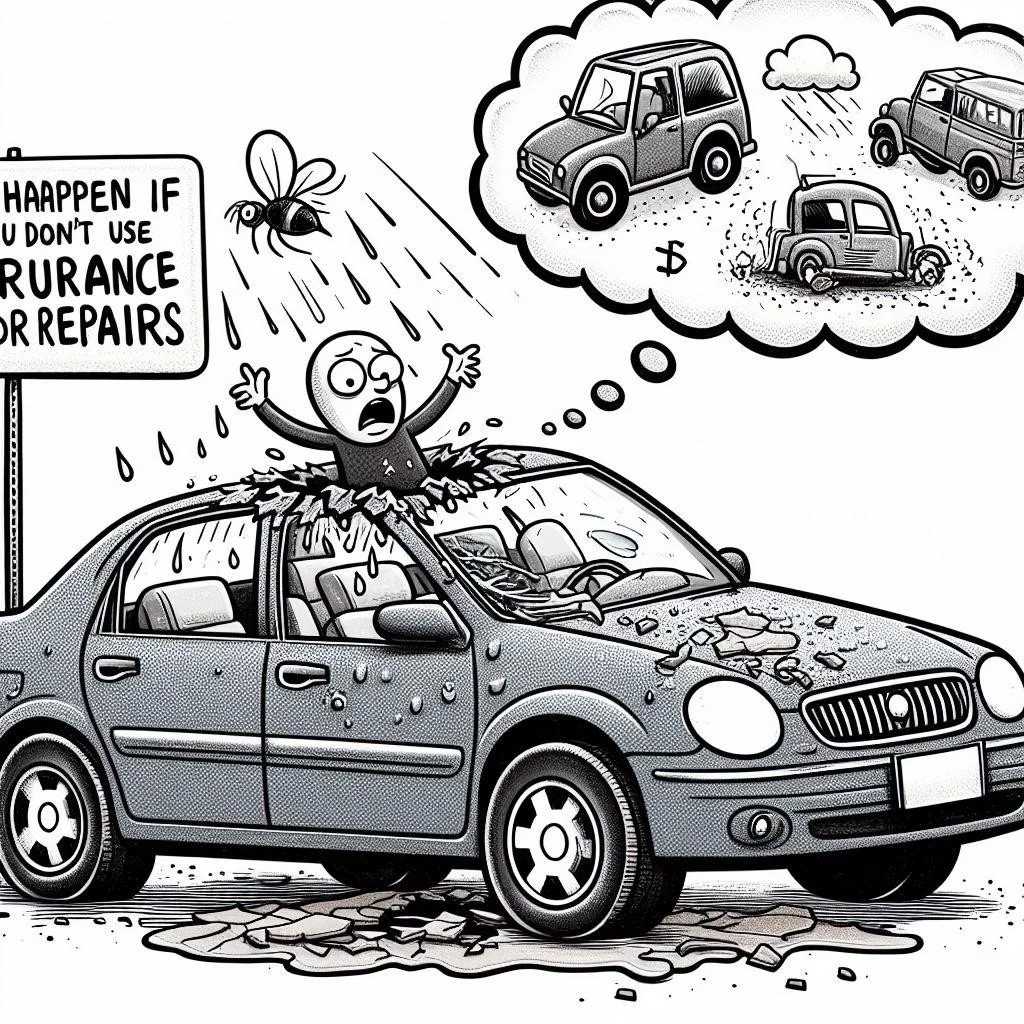When you file an insurance claim for damages to your home, the insurance company’s primary objective is to restore your property to its pre-loss condition. The insurance money they provide is meant to cover the costs of necessary repairs, ensuring that your home is safe and habitable again. However, some homeowners may be tempted to use the insurance payout for other purposes, which can lead to severe consequences. In this article, we’ll explore what happens if you don’t use insurance money for repairs, examining the implications from legal, financial, and practical standpoints.
Table of Contents
ToggleUnderstanding the Insurance Claim Process
The insurance claim process involves three main parties: the homeowner, the insurance company, and the contractor or repair company. When a covered event occurs, such as a fire, storm, or water damage, the homeowner files a claim with their insurance company. The insurance company then sends an adjuster to assess the damage and determine the amount of coverage.
If the claim is approved, the insurance company provides the homeowner with insurance claim money, which is intended to cover the costs of repairs. The homeowner is typically responsible for paying a deductible, which is the out-of-pocket amount they must contribute before the insurance coverage kicks in.
The homeowner then hires a contractor or repair company to perform the necessary repairs, using the insurance money to cover the costs. The contractor and the insurance company work together to ensure that the repairs are completed correctly and to the satisfaction of all parties involved.
The Homeowner’s Insurance Policy
The homeowner’s insurance policy is a legally binding contract between the insured (the homeowner) and the insurer (the insurance company). This policy outlines the specific terms and conditions under which the insurance company agrees to provide coverage for damages or losses.
It is essential for homeowners to thoroughly understand their insurance policy, including the coverage limits, exclusions, and requirements. Most homeowners’ insurance policies stipulate that the insurance money provided must be used for the intended purpose of repairing or replacing the damaged property.
Failing to comply with the terms of the insurance policy can have severe consequences, including potential legal action, denial of future claims, or even the cancellation of the policy altogether.
Scenarios of Not Using Insurance Money for Repairs
There are several scenarios in which a homeowner may be tempted to use the insurance money for purposes other than repairing their property. Here are three common scenarios:
Scenario 1: The homeowner decides to pocket the money and not conduct repairs
In this scenario, the homeowner receives the insurance payout but chooses not to perform the necessary repairs. Instead, they decide to keep the money for personal use or investment purposes. This action is a direct violation of the insurance policy and can have severe legal and financial consequences.
Scenario 2: Homeowner uses the money for unrelated expenses
Some homeowners may be facing financial difficulties and decide to use the insurance money to pay for unrelated expenses, such as credit card debt, medical bills, or personal purchases. While the temptation to alleviate financial stress may be strong, using the insurance money for purposes other than the intended repairs is a breach of the insurance contract.
Scenario 3: Homeowner uses the money to pay off a car loan/lease or other debts
In this scenario, the homeowner uses the insurance money to pay off an outstanding car loan, lease, or other debts. While this may seem like a responsible financial decision, it violates the terms of the insurance policy, which requires the money to be used for repairing the damaged property.
Legal and Financial Consequences
Not using insurance money for repairs can have severe legal and financial consequences for the homeowner. Here are some potential implications:
Legal Consequences
● Breach of contract: By not using the insurance money for its intended purpose, the homeowner is in breach of the insurance policy contract. This can result in legal action from the insurance company, including the possibility of being sued for damages.
● Insurance fraud: In some cases, the misuse of insurance money can be considered insurance fraud, which is a criminal offense. Depending on the severity of the case, the homeowner could face fines or even criminal charges.
Impact on Future Insurance Claims
● Denial of future claims: If the insurance company discovers that the homeowner misused the insurance money, they may deny future claims or cancel the policy altogether. This can make it challenging and costly to obtain new insurance coverage.
● Increased premiums: Insurance companies may view homeowners who have misused insurance money as higher risks, resulting in increased premiums or difficulty finding affordable coverage.
Role of the Mortgage Lender
● Lien on the property: If the homeowner has an outstanding mortgage on the property, the lender may place a lien on the home if they discover that the insurance money was not used for repairs. This can prevent the homeowner from selling or refinancing the property until the lien is satisfied.
● Foreclosure: In extreme cases, the mortgage lender may initiate foreclosure proceedings if the homeowner fails to maintain the property under the mortgage agreement.
Endnote
Using insurance money for its intended purpose – repairing or replacing damaged property – is not just a requirement of the insurance policy; it’s also a legal and ethical obligation. Misusing insurance funds can have severe legal, financial, and practical consequences that can haunt homeowners for years to come.
Homeowners should always prioritize the repair and restoration of their property after a covered event. If financial difficulties arise, it’s best to communicate openly with the insurance company and explore alternative solutions, such as payment plans or additional assistance programs.
Ultimately, homeowners should treat insurance money with the utmost respect and use it solely to restore their property to its pre-loss condition. Doing so not only ensures compliance with the insurance policy but also helps maintain the integrity of the insurance system and protects the homeowner’s investment in their property.





